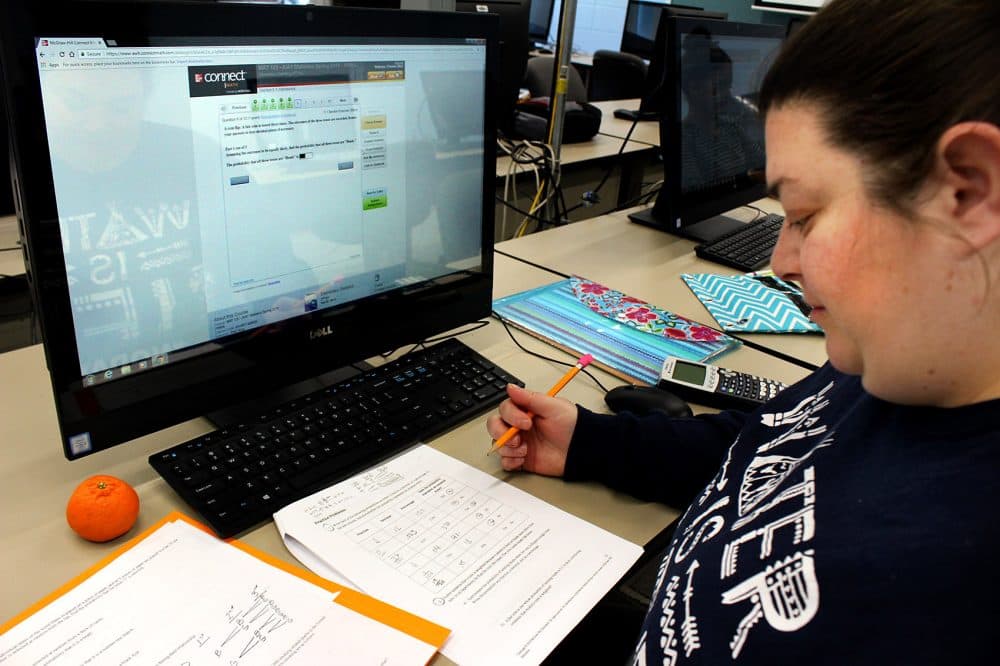Advertisement
Mass. Colleges Look Beyond Placement Tests To Get Students Past Remedial Classes
Resume
For college sophomore Christine Sifre, one statistics class is all that stands between her and an associate degree in liberal arts.
"I did all of the classes I needed to graduate and procrastinated," Sifre explained. "Math is scary for me."
When she started classes at Northern Essex Community College, she took the state math placement test but didn’t score high enough to go directly into the statistics course she needed to graduate. Instead, she had to take a remedial class to get up to speed.
The class Sifre is sitting in looks like a normal statistics course at first glance. There are desks, computers and probability statements scribbled on a large white board.
But this is actually a relatively new type of remedial class being offered at NECC called "statistics fusion." Remedial students like Sifre go to this class just before heading into a regular college statistics course later in the day. It’s known officially as a co-requisite course, but it’s essentially two hours of extra help.
The main benefit is that it saves students time because, in the past, getting through remedial math could take up to three additional semesters.
"We lose most of our students at developmental math," said Habib Maagoul, NECC's math department chair. He added that the idea of taking three semesters of math overwhelmed a lot of students, and many dropped out.
"I think they feel like, 'Oh my God, I’m taking three classes and they’re not going toward my degree.' And they feel like a year and a half is too much," Maagoul explained.
But this issue goes beyond the NECC campus. According to statewide data from 2012, only 21 percent of students who were placed in a developmental class in Massachusetts went on to pass a college level course.
Carlos Santiago, the Massachusetts higher education commissioner, says that while it’s easy to blame K-12 schools, especially those that are underperforming and happen to serve mostly low-income and minority students, "We had to take some responsibility for this."
"So we said OK, let the campuses experiment," Santiago said.
Some schools are letting students with a 2.7 GPA bypass remedial classes altogether, even if they don’t pass the state placement test. Others, like NECC, are trying a co-requisite model. And some are tailoring math classes to students' majors, so elementary education students aren’t having to slug through calculus.
"And there were a lot of skeptics," Santiago said. "They were saying, 'Oh no, these students aren’t going to succeed.' "
While the higher education department is still processing statewide data on what has been a four-year pilot project, initial results are showing some promise. Officials at Framingham State University say co-requisite students are doing just as well as their peers in college level math. Over at Roxbury Community College, the math passage rate among remedial students more than doubled with the addition of co-requisite courses.
Santiago maintains these models aren’t for every student.
"But the fact that we have fewer students needing to remediate ... I’ll take that as a win," he said.
Santiago added that for him, this issue is more than just a math problem. He hopes the state's efforts get more students — particularly students of color — to commencement and better-paying jobs, rather than just strapped with more debt.
This segment aired on March 5, 2018.
